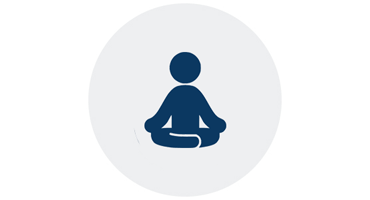
1
Make sure you’re well rested prior to your trip and try to gradually adjust to your destination time zone a few days before travelling
When it comes down to brass tacks, hotels are in the business of sleep. A hotel can have fantastic service, beautiful design and the most delicious food, but if your guests don’t sleep well it’s fair to say that hotel has failed in its most important job. There are a number of different factors which all work together to ensure your guests wake up feeling refreshed, so in this blog we’re going to take a look at what these are and how you can make sure you’re covering each one:
This may seem obvious, but at the end of the day the simplest way to make sure your guests sleep soundly is to give them a comfortable bed to sleep on. Beds are personal things, but if the mattresses on your hotel beds are in good condition and not extremely firm or extremely soft, you give your guests a much better chance of a good night’s sleep. This extends to the pillows and any other bedding the guest comes into contact with. Another tip is to offer a topper to guests who like their mattress to be on the softer side as this is a quick, temporary way to make a mattress softer. Of course, we can help here; we have a great selection of beds, mattresses and bedding so have a look and get in touch if we can help in any way.
You may find that many of your guests are visiting from other time zones, so helping them either adapt to their local time can really help ensure they sleep well. This is less down to bedding (although a comfortable bed obviously helps) and more down to practical steps that you can take to make acclimatising easier. It may be that if your guest is only staying for one night that they won’t want to adjust to local time. In these cases, you can help them stay on track by setting up the room to match their local time, whereas if a guest is staying for a few days they are more likely to want to adapt to local time as quickly as possible. Ways to do this include changing the times on the clocks, using blackout curtains to keep the daylight out and using and adhering to ‘do not disturb’ signs. If a guest is likely to want to sleep during the day when most of your guests will be awake then putting them in a quieter section of the hotel may also help.
While some of your guests will likely have their own tried and tested travel and sleep routines, providing suggestions can be a great way to let your guests know that your goal is to give them the best night’s sleep possible. These can be provided over email, prior to guest check-in, or with leaflets waiting for them in their room when they arrive.
There aren’t many frequent flyers for whom jet lag isn’t a real frustration. Minimising its effect, even by a few percent, can make a genuine difference to energy and productivity levels in the early stages of someone’s stay. Adding some tips and tricks on how to do this, along with the advice about sleeping routines, all goes towards conveying your message of the importance of sleep to your customers. The NHS and Skyscanner have some useful tips to reduce jet lag, including:
As you can see, there are a few ways you can help your guests get truly restful and recuperative sleep. At the end of the day, nothing will beat a truly comfortable bed!
Why not get a quote for the most comfortable beds in the world for your buisness?